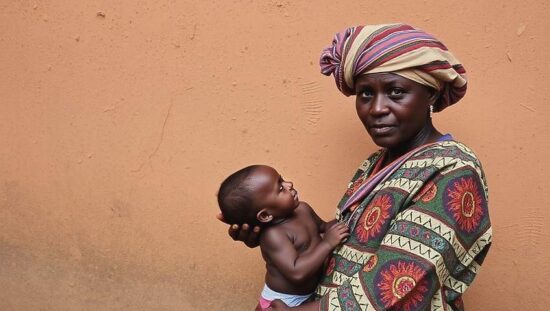The World Health Organization (WHO) reported on Monday that the maternal and infant mortality rates in Africa have significantly decreased since 2000. Between 2000 and 2020, the maternal mortality rate in Africa decreased by 40%, from 727 to 442 per 100,000 live births. However, the speed of this decline is not sufficient to meet the Sustainable Development Goal of less than 70 maternal deaths per 100,000 live births by 2030.
According to the data, more than 60% of African countries now report that medical personnel are present during more than 80% of births; in 2010, this was only the case for 28% of births. Despite these advancements, there are still significant gaps in rural and crisis-affected areas in the region.
“The key barriers to progress are inadequate financing, weak governance, a shortage of medical personnel and recurring shocks such as disease outbreaks and conflicts that disrupt maternal and child health services. In fragile and crisis-affected environments, women and children are particularly vulnerable” emphasized the WHO.
Currently, 70% of all global maternal and child deaths are recorded on this continent and it is estimated that 178,000 mothers and one million newborns die there annually.
The WHO identifies several factors contributing to maternal mortality, such as severe bleeding, infections, high blood pressure during pregnancy, complications during childbirth and unsafe abortions. The death of newborns is often due to premature birth, childbirth complications and infections. Many of these deaths would be preventable with timely assistance.
The WHO emphasizes the need to accelerate efforts to improve the health of mothers and newborns in Africa.
“Still, at too many places, pregnancy and childbirth remain life-threatening events. Every dollar invested in the health of mothers and newborns yields rich returns: healthier families, stronger societies and sustainable economic growth” said Dr. Chikwe Ihekweazu, the current Regional Director of the WHO for Africa.
The British Guardian cited a warning from UNICEF Director Catherine Russell that global savings in health services would put more pregnant women, especially in risk areas, in danger by restricting access to essential care. She emphasized the need to “invest in midwives, nurses and community health workers” to ensure that every mother and baby has a chance to survive and thrive.





